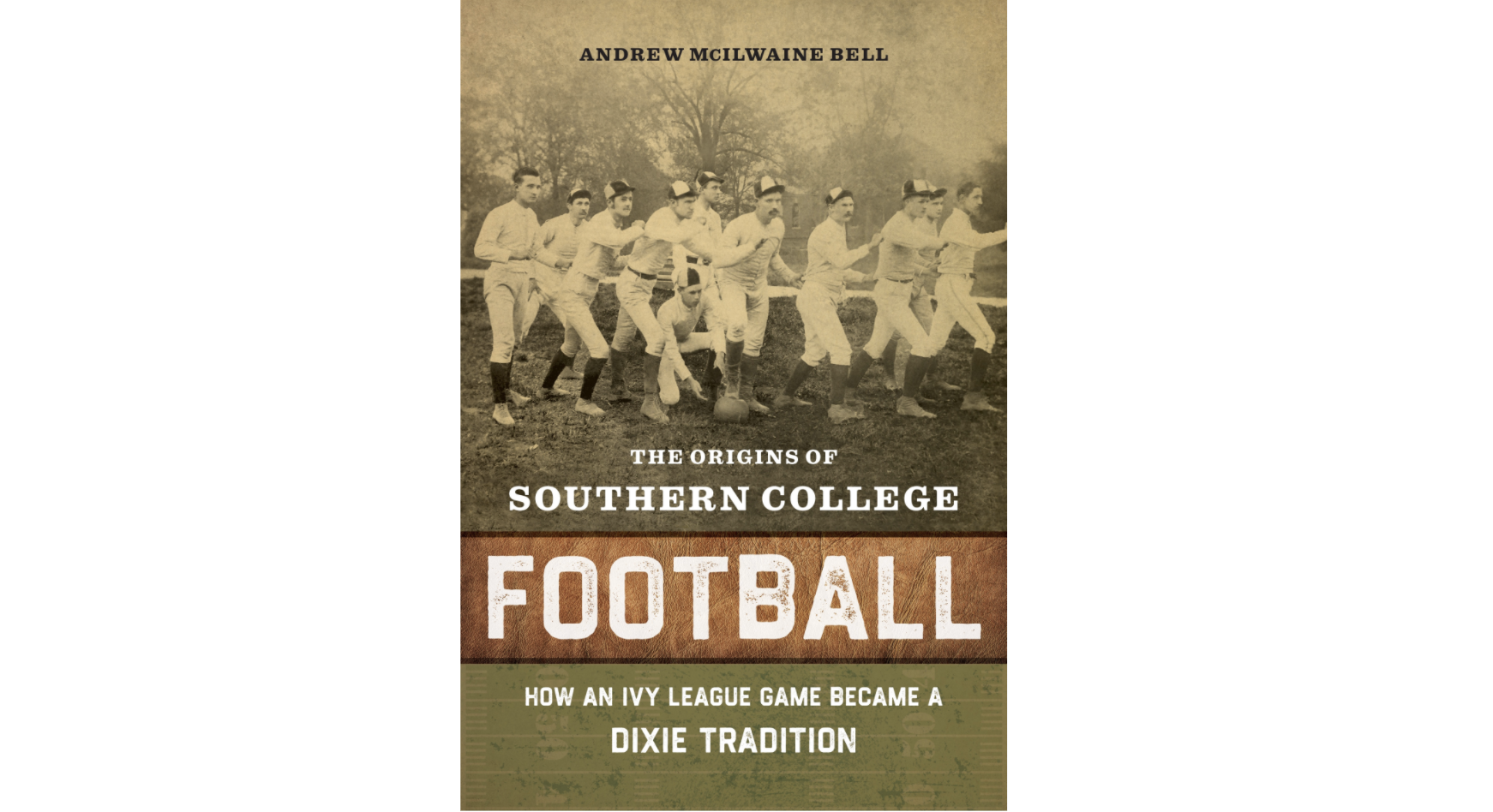Off the page: ‘The Origins of Southern College Football’
As COVID-19 and its accompanying restrictions have upended nearly every aspect of life, a line has been drawn in the South. A line defending that which is sacred and therefore cannot be touched. It’s not church—that was moved online months ago. Rather, it’s football.

Photo by Grow Explore Photography.
When University of Virginia professor Andrew McIlwaine Bell began work on his chronicle of football’s transformation from a loosely organized game for Ivy Leaguers to the multibillion-dollar enterprise it is today, he couldn’t have anticipated the new relevance that would be cast onto the contents of his book at the time of its release.
For Bell, football is a lens through which societal values and cultural changes can be easily examined. And while The Origins of Southern College Football: How an Ivy League Game Became a Dixie Tradition focuses on those that characterize the time between the end of the Civil War and the end of World War I at the very start of football’s reign, the same method can be used to examine the current environment.
At its start, football aided in helping a recently defeated South find a new sense of pride and a place in the rapidly industrializing United States. Throughout the years, it continued to be a unifying force amid struggles from economic depressions to worldwide military conflicts. And today, the emphasis put on the decision of the SEC to continue with the fall 2020 season speaks to the importance of the game to the South’s culture and its economy.
In the beginning of his book, Bell asks why countless decades of fans have contributed their time and money to see the rise of the sport and their teams. While the answer is in no way simple, in the face of a pandemic it seems easier to understand. Football offers not only an escape from daily drudgery, but an opportunity for human connection. In a time when everyone has been separated by mandatory distancing, the chance to connect on an emotional level, cheering for the team that has endured through countless disasters and emergencies, is a priceless opportunity that can’t be overlooked or undervalued.
“Football, after all, has never been a static, motionless game but one that is constantly moving and adapting to changing circumstances, both on and off the field,” Bell writes in the book’s introduction. “In other words, it has continually been reshaped by the broader cultural and political currents of American life.”












